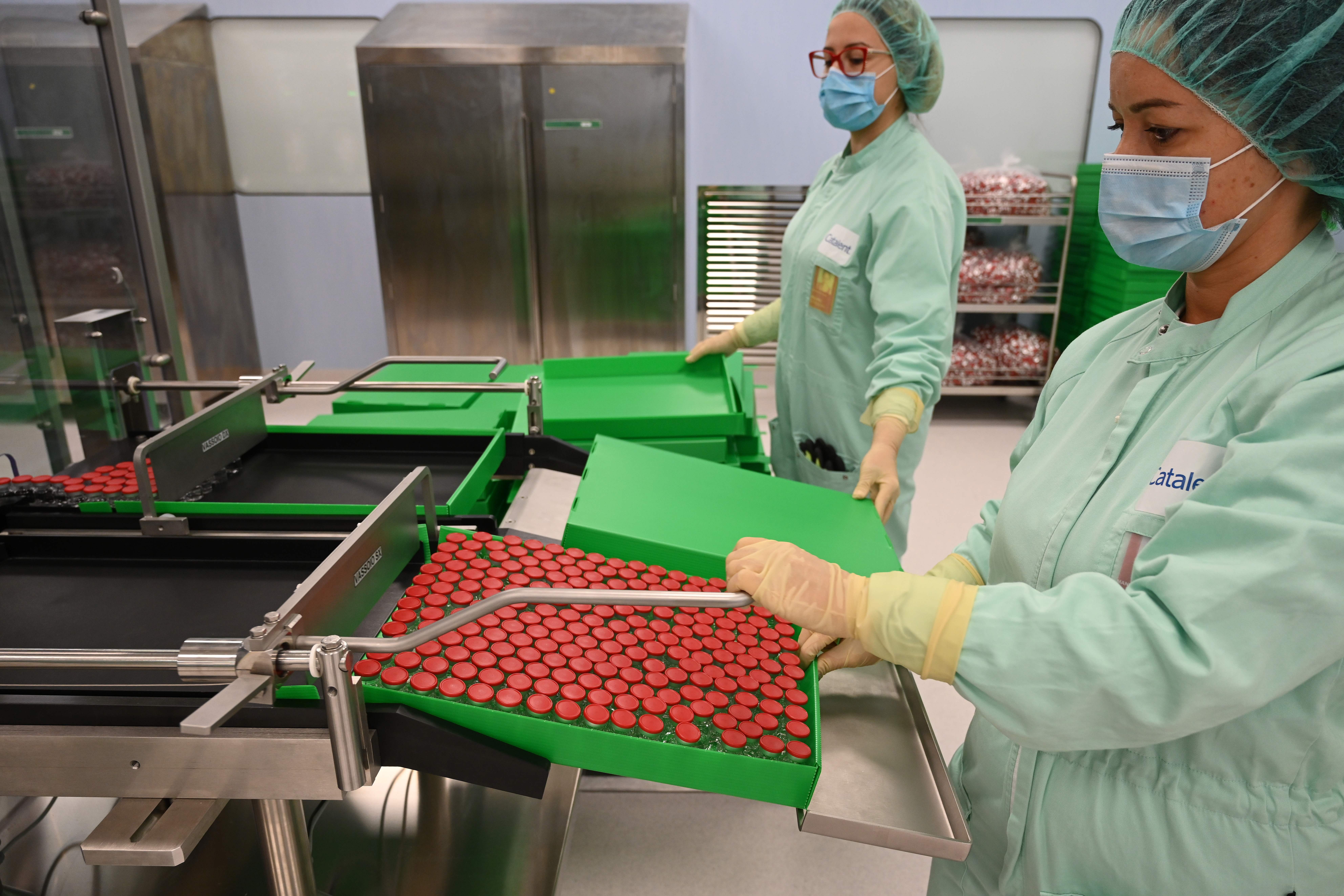
Laboratory technicians handles capped vials as part of filling and packaging tests for the large-scale production and supply of the University of Oxfords COVID-19 vaccine candidate, AZD1222, conducted on a high-performance aseptic vial filling line on September 11, 2020 at the Italian biologics manufacturing facility of multinational corporation Catalent in Anagni, southeast of Rome, during the COVID-19 infection, caused by the novel coronavirus. – Catalent Biologics manufacturing facility in Anagni, Italy will serve as the launch facility for the large-scale production and supply of the University of Oxfords Covid-19 vaccine candidate, AZD1222, providing large-scale vial filling and packaging to British-Swedish multinational pharmaceutical and biopharmaceutical company AstraZeneca.
Vincenzo Pinto | AFP via Getty Images
The World Health Organization said that more than 170 countries had joined its global plan to distribute vaccines fairly around the world, but cautioned that a race to develop shots could lead to public fears about safety.
Trials of a vaccine in Britain were paused earlier this month following an illness in a participant, while Russia has dismissed criticisms from Western experts warning against early use of its vaccine candidate.
“We already face challenges with vaccine acceptance for many proven vaccines,” WHO chief Tedros Adhanom Ghebreyesus said in pre-recorded comments, as he spoke about the push to rapidly develop vaccines.
“We cannot risk having an effective vaccine for Covid-19 that people refuse because of the perception that it is unsafe.”
Ahead of a Friday deadline for entry to its COVAX vaccine facility, Tedros said the more than 170 countries who had joined “gaining guaranteed access to the world’s largest portfolio of vaccine candidates.”
WHO previously said 92 lower-income nations were seeking assistance via the scheme, and some 80 higher-income nations had expressed interest, but some still had to confirm their intention by the deadline.
The WHO and the GAVI vaccine alliance are leading the COVAX scheme, which aims to procure and deliver 2 billion doses of approved vaccines by the end of 2021.
But some countries that have secured their own supplies through bilateral deals, including the United States, have said they will not join COVAX.
“The first vaccine to be approved may not be the best,” Tedros added during a webinar hosted by the National University of Singapore. “The more shots on goal we have, the higher the chances of having a very safe, very efficacious vaccine.”




